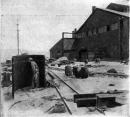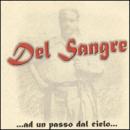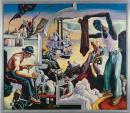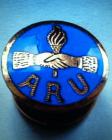Near the City of Chicago, where riot holds full sway,
The workingmen of Pullman are battling for fair play;
But the Boss he would not listen to the workingmen 's appeal,
And scorned their mute advances, no sympathy did feel.
The railroad men refused to move even a single car,
Till suddenly from Washington they heard the White House Czar
Proclaim them all lawbreakers, and then in mournful tone
To their countrymen they sent their cry with sad and dismal moan:
Remember we are workmen, and we want honest pay,
And gentlemen, remember, we work hard day by day;
Let Pullman remember, too, no matter where he roams,
We built up his capital, and we're pleading for our homes.
The troops are ordered from the East and from the Western shore,
The firebrands of anarchy are brought to every door;
Honest workmen repudiate the work of thugs and tramps,
And think it is an outrage to be reckoned with these scamps.
Arbitration is what they asked, but the Boss he quick refused,
"Your fight is with the railroads," was the answer they perused;
But Pullman will regret the day he gave this harsh reply;
And workingmen throughout the land will heed our pleading cry.
Remember we are workmen, and we want honest pay,
And gentlemen, remember, we work hard day by day;
Let Pullman remember, too, no matter where he roams,
We built up his capital, and we're pleading for our homes.
The workingmen of Pullman are battling for fair play;
But the Boss he would not listen to the workingmen 's appeal,
And scorned their mute advances, no sympathy did feel.
The railroad men refused to move even a single car,
Till suddenly from Washington they heard the White House Czar
Proclaim them all lawbreakers, and then in mournful tone
To their countrymen they sent their cry with sad and dismal moan:
Remember we are workmen, and we want honest pay,
And gentlemen, remember, we work hard day by day;
Let Pullman remember, too, no matter where he roams,
We built up his capital, and we're pleading for our homes.
The troops are ordered from the East and from the Western shore,
The firebrands of anarchy are brought to every door;
Honest workmen repudiate the work of thugs and tramps,
And think it is an outrage to be reckoned with these scamps.
Arbitration is what they asked, but the Boss he quick refused,
"Your fight is with the railroads," was the answer they perused;
But Pullman will regret the day he gave this harsh reply;
And workingmen throughout the land will heed our pleading cry.
Remember we are workmen, and we want honest pay,
And gentlemen, remember, we work hard day by day;
Let Pullman remember, too, no matter where he roams,
We built up his capital, and we're pleading for our homes.
envoyé par Dead End - 27/9/2012 - 14:31
×
![]()








Sulla melodia della popolare "The Widow's Plea For Her Son"
Testo trovato su “American Folksongs of Protest” di John Greenway, 1953.
“Due sono gli scioperi più significativi da ricordare, perché riguardano i pilastri dell’industria statunitense, sono lo sciopero nelle officine Pullman e quello di Homestead.
George Pullman, famoso inventore e costruttore di omonime carrozze ferroviarie, aveva messo in piedi una fabbrica dotata di una company town modello nei pressi di Chicago.
Quando i suoi operai scioperarono per l’ennesima riduzione salariale ottennero l’appoggio dell’ARU (American Railway Union).
In poco tempo il loro sciopero si allargò a tutti i livelli dell’industria ferroviaria su scala nazionale, ma venne sedato arrestandone i capi grazie anche all’aiuto del governo federale.”
(Da “Per una storia del Newport Folk Festival”, tesi di laurea di Francesca Ferrari, Università di Firenze, a.a. 2005/2006)
La città di Pullman nell’Illinois si chiama così perché venne creata dall’industriale George Pullman, costruttore di carrozze ferroviarie, tram e bus, per ospitare le sue numerose maestranze.
Nel maggio del 1894 gli operai della Pullman Palace Car Company – quegli ingrati! – cominciarono uno sciopero selvaggio, leaderato da Eugene V. Debs e dalla sua A.R.U. (American Railway Union), perché il signor Pullman da una parte aveva ridotto le paghe e dall’altra aveva aumentato gli affitti nella città operaia da lui stesso creata. Non tutti i lavoratori aderirono allo sciopero e nemmeno tutte le loro organizzazioni e così i militanti dell’A.R.U. iniziarono un gigantesco boicottaggio che finì per coinvolgere 250.000 lavoratori in quasi una trentina di Stati. Lo sciopero si fece violento, con milioni di dollari di danni e 30 morti. Il governo federale intervenne ingiungendo agli scioperanti di recedere dai loro propositi e poi inviando le truppe.
Debs e gli altri leader furono arrestati, lo sciopero collassò, l’ A.R.U. scomparve ma è proprio da quell’esperienza che nacque in seguito l’IWW (Industrial Workers of the World) ed il Comunismo americano. (fonte: en.wikipedia)